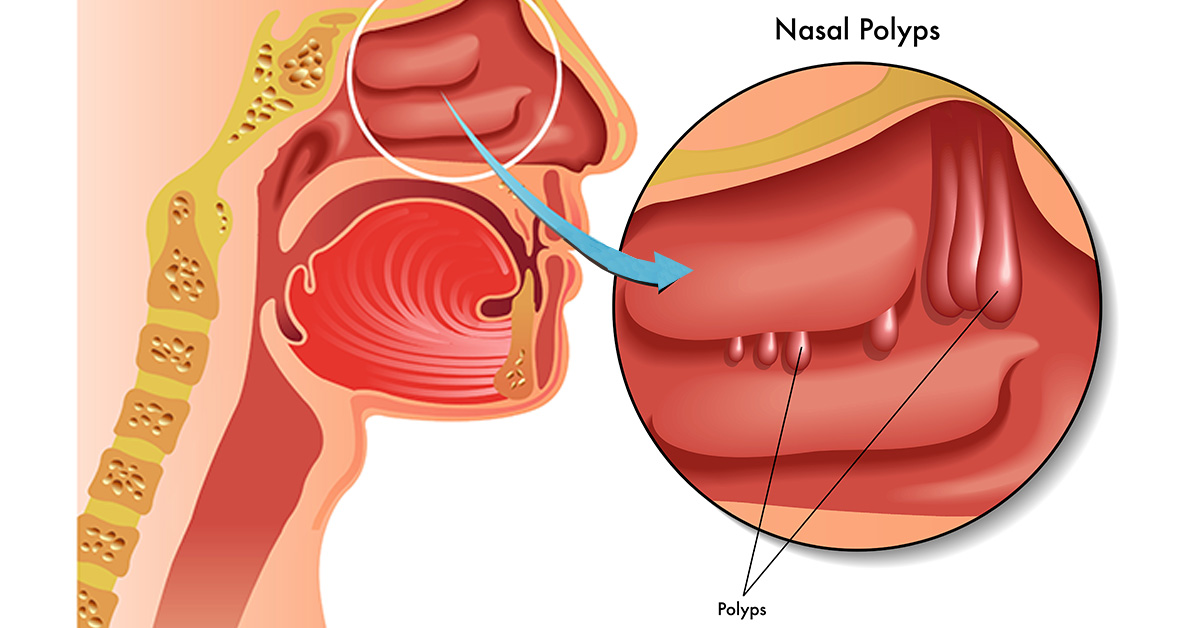
Nasal Polyps
Non-cancerous growths of inflamed tissue are known as nasal polyps. They arise from the lining of the nose or sinus, obstruct normal drainage, and often cause breathing challenges. Nasal polyps may lead to a lessened sense of smell and taste as well as ongoing infections. Other symptoms include facial pressure, snoring, sleep apnea, pain in the upper teeth, and postnasal drip.
Ethmoidal polyps, which are the most common type, come from the ethmoid sinuses and can be found through the middle meatus all the way into the nasal cavity. Antrochoanal polyps on the other hand occur in the maxillary sinus and extend into the nasopharynx.
Although anyone can develop nasal polyps, this condition is often present in adults and children who are living with cystic fibrosis, asthma, allergic rhinitis, and chronic sinusitis. Additionally, those who are 40 years old and older are more susceptible to them than younger individuals.
Causes of Nasal Polyps
In most cases, nasal polyps are correlated to cystic fibrosis, allergic rhinitis, sinus infections, and related conditions. The cause of them, however, is unknown. Some researchers suspect that sneezing, itching, runny nose, and other allergy symptoms can lead to nasal polyps. There are also studies that indicate that sinus infections cause them.
Diagnosing Nasal Polyps
If you show symptoms of nasal polyps, a doctor may conduct a physical exam and pay close attention to your nose. They may also perform a nasal endoscopy, where they insert a narrow tube into your nostril to get a close look at the inside of your nose and sinuses. An imaging test such as a CT scan, skin test to determine whether allergies are a factor, or a cystic fibrosis test are other diagnostic testing options.
Treating Nasal Polyps
To treat nasal polyps, a doctor may recommend a nasal corticosteroid spray, which can minimize inflammation. If the spray deems to be ineffective, an oral corticosteroid may be necessary. Since it does lead to severe side effects, this is a temporary solution. Antihistamines to treat allergies and antibiotics to treat infections may be used as well. Surgery is usually a last resort and only considered when conservative treatments fail.
Preventing Nasal Polyps
Fortunately, there are several things you can do to reduce the risk of nasal polyps. Practice proper hygiene, opt a humidifier, take asthma and allergy medications as prescribed, and use a saline rinse to get rid of allergens.



